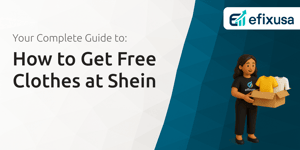
In today’s dynamic financial landscape, choosing the right stock investing platform can be the difference between meeting your retirement goals or falling short. This guide examines the top platforms of 2025 and provides actionable insights to help you build lasting wealth.
The modern brokerage arena offers myriad choices, each with unique fee structures, asset coverage, and user experiences. Your choice of platform impacts fees, research capabilities, and long-term performance potential.
Whether you are a novice investor seeking a simple, intuitive app or an experienced trader desiring sophisticated analytics, the platform you select lays the foundation for your investing journey.
In 2025, brokerages have evolved to cater to diverse investor profiles. Below, we highlight twelve leading platforms, their core strengths, and what sets them apart.
Fidelity Investments stands out as the all-around powerhouse. With fractional shares start for one dollar, $0 commissions, and a broad product suite, it supports investors at every stage. Comprehensive retirement planning and deep educational resources make it a top pick for builders of long-term wealth.
Charles Schwab offers $0 trading costs, no account minimum, and the powerful thinkorswim platform inherited from TD Ameritrade. Its intuitive research tools and robust customer service empower beginners and advanced traders alike to craft personalized strategies.
Interactive Brokers caters to high-level investors, boasting advanced analytics and tools, algorithmic trading support, and global market access. Its low-margin rates and risk management suite attract international and professional clients.
E*TRADE delivers an award-winning mobile experience for casual traders. Its sleek app design, rich educational content, and commission-free trades ensure a seamless, on-the-go investing process.
Webull targets active, young investors with 24/7 phone support, instantaneous funding, and social features to foster community engagement. While educational offerings are limited, the platform excels in real-time data and charting.
Robinhood remains synonymous with simplicity and crypto. Its clean interface, quick account activation, and basic research tools suit those who value convenience over complexity.
Betterment and SoFi Invest lead the robo-advisor space. Betterment offers a fully automated and diversified ETF portfolio with tax-loss harvesting and social responsibility options, while SoFi balances robo and self-directed approaches with no minimum balance requirements.
Capital.com breaks new ground in global investing, pairing commission-free trading with robust research and educational resources. Regulated by top-tier authorities, it provides extensive forex, crypto, and stock coverage.
Ally Invest appeals to customers valuing banking integration, with low fees, automated and self-directed options, and wealth management services for high-net-worth individuals. Merrill Edge blends Bank of America synergy with tailored research and personal advisor support.
Tastytrade differentiates itself through options and derivatives, offering low commissions and interactive educational segments that focus on advanced options strategies.
Trust in your brokerage is paramount. Top platforms are overseen by the SEC, FINRA, FCA, CySEC, and ASIC, ensuring adherence to strict operational standards.
Most US brokers carry SIPC insurance up to $500,000, while international providers often secure additional private coverage. In an era of rising AI-driven fraud, vigilant monitoring systems and robust encryption are essential to guard against market manipulation and data breaches.
Successful investors blend disciplined strategy with platform features:
Diversification remains fundamental—spreading capital across equities, fixed income, and alternative assets limits risk and smooths returns. Automated DRIPs and scheduled contributions leverage cost-averaging to mitigate volatility.
Active traders can exploit advanced tools and real-time data, but must remain mindful of trading costs and emotional biases. Long-term holders benefit from tax-advantaged accounts like IRAs and 401(k)s to maximize compound growth potential.
Commission-free stock and ETF trades are now industry standard. Options trades typically incur $0.50–$0.65 per contract, and niche services may carry specialized fees.
Zero account minimums prevail, with fractional share platforms allowing investments of just $1. High-touch wealth management may require $100,000 or more.
Mobile trading has surged, representing the majority of retail trades among investors under 35. Platform ratings reflect this shift: Betterment and Fidelity average 4.8/5 in app stores, while Robinhood and Webull hover around 4.3–4.6/5.
Security concerns tied to AI abuse have prompted regulators to flag potential price distortions reaching up to 65% in certain crypto markets.
International clients should prioritize platforms with global market access and multi-currency accounts. Investors seeking ethical alignment can explore SRI and ESG-focused portfolios on major brokerages.
Educational transparency is rising; firms are de-emphasizing gamified features to foster sound financial literacy. When selecting a platform, match your personal goals, risk appetite, and desired level of engagement.
By aligning your personal goals with platform strengths, you can confidently navigate the evolving brokerage landscape and build sustainable wealth.













